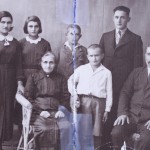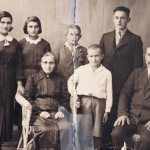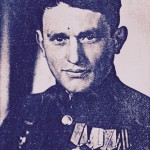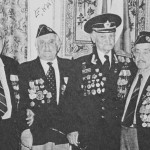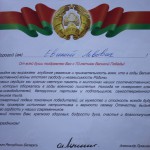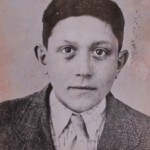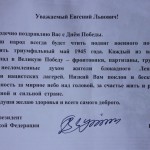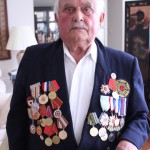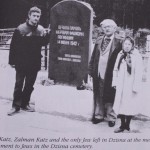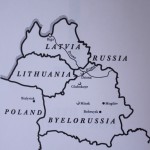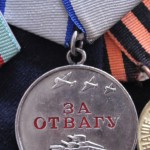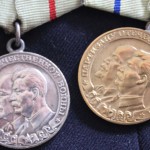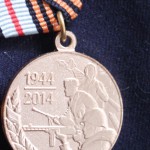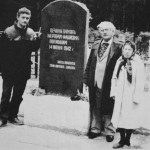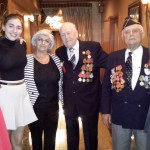Eugene Katz was born in Dyszna, Poland in in 1927. He was one of five children, growing up in a Jewish family not too far from Vilna; he recalls a difficult life, beset by hunger and poverty, but also filled with family and friends. When war came in 1939, Eugene’s family was in eastern Poland, the part of the country assigned to the USSR in the infamous 1939 Nazi-Soviet Non-Aggression Pact. The family suddenly found itself under Soviet domination; as big a change as this was, life continued, though clear signs of Soviet communism began to enter their lives. 1941 saw the real change though…Germany initiated Operation Barbarossa, and within a matter of days Eugene’s family was under the heel of the Nazi regime. The family was quickly put in a ghetto, and Eugene’s oldest sister Sophie was murdered. Life became increasingly difficult in the ghetto, as the young Eugene and his family struggled to survive. Then the darkest of days arrived, with the liquidation of the ghetto by the Einsatzgruppen. Most of Eugene’s family was taken to a killing site and murdered. Eugene was there, witnessing these terrible events, but he and his brother escaped, taking advantage of the fog and running into the forest. Now a teenager, Eugene joined the Russian partisans, and he managed to survive four intense years of warfare, often the victim of political intrigue and anti-Semitism in the Red Army. Very crafty and clever and willing to do what he had to, Eugene made it, the only member of his family to survive the war and the Shoah. He began to rebuild his life, marrying and working in Riga, and in the 50s he made it to Poland, and from there Canada. Every step of the way his survival instinct kept him afloat, and he went on to create a prosperous business in postwar Canada, helping to build the country we know today.
Eugene Katz was interviewed at his home in July 2017, by Crestwood teacher Scott Masters. The interview was set up courtesy of the Jewish War Veterans Association of Toronto.
Videos
Click next video below to keep watching
- 1. Introduction and Family
- 2. September 1939
- 3. Caught between the Russians and the Germans
- 4. The Collaborators and the Judenrat
- 5. June 1942
- 6. Escape
- 7. Joining the Partisans
- 8. Against the Wall
- 9. The Last of His Family
- 10. On The Run
- 11. Caught between Partisans and the Germans
- 12. 40 000 Partisans
- 13. On the Offensive
- 14. Hit by Shrapnel
- 15. The Moscow Inspectors
- 16. January 1945
- 17. 1957 - Emigration
- 18. Leaving the USSR
- 19. Back in Poland
- 20. Coming to Canada
- 21. Business Maneuvers
- 22. The Family Photograph
